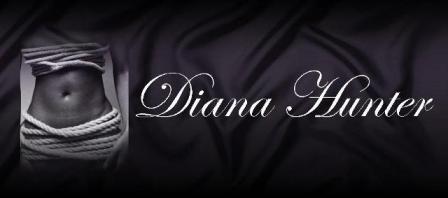Just saw the movie, Tomorrowland
and had to take time to put down my reactions. Minor spoilers ahead.
What has happened to our visions of the future? This
question is posed early in Tomorrowland,
Disney’s latest live-action movie. The exposition starts at the World’s Fair of
1964 with all the optimism and hopes for a “great big beautiful tomorrow” and
contrasts it with our world vision today.
The hopes and fears of a society are often reflected in its
literature and much of today’s young adult reading is dystopian. The Hunger Games, the Divergent series, and The Maze Runner, all paint a pretty
bleak future that needs to be overcome or corrected. Even The Lego Movie, which is geared for little kids, is set in a future
that isn’t very pleasant. While the
overall message is positive: totalitarian governments and societal breakdowns
can be fixed, each one of them assumes that we first self-destructed.
Governmental, environmental, societal: you name it, we imploded it.
And that’s worried me for quite some time. This is the
literature our kids gobble up. Yes, the messages are ones of hope, but what did we do to get to the point where we needed it? All of them
assume the worst of human nature took over the country or the entire planet.
After a while, you have to wonder if that becomes a self-fulfilling prophecy:
Your future sucks, so get used to it now. You’re going to have to live with it
a while before someone comes along to save it.
Tomorrowland is a
direct reaction/response to all that negativity. It doesn’t so much as paint a
rosier picture, but shows a future that doesn’t have to end in a bleakness that
needs overcoming. It states that we can change things NOW so they never get to
that point in the first place. In fact, Casey Newton, the protagonist, asks
that question when one of her teachers finally gives her the opportunity: “What
can we do to change the future?” and this question becomes one of the driving
forces of the movie.
As does the idea of a self-fulfilling prophecy. We feed ourselves
negative thoughts via the 24-hour news cycle. Our social media is filled with
bullies who hide behind anonymity to spread their hatred. Our government
officials are corrupt and think their only crime was getting caught. Fill
yourself with enough of this and of course you’re going to have a negative view
of the future.
I didn’t get to go to the World’s Fair in 1964, although my
uncle did and he brought back pictures. I still have his stereo slides – yes,
he could take 3D pictures with a double-lens camera back then and project the
slides onto a screen. We’d wear 3D glasses with a red and a green lens to view
them in the three dimensions– a technology, unfortunately, we no longer have
available. I watched those slides over and over, dreaming of going into space
someday, of flying cars and jet packs. We stood on the cusp of greatness.
Progress wasn’t a dirty word – it was hope for a better future.
Somewhere we lost that ideal. The companies we hoped would
bring us a better life did so at a cost to the environment that made us realize
the future had a price we weren’t sure we wanted to pay. Watergate happened and
we lost faith in our government. Terrorism, a word unknown in 1964, became a
new reality we had to handle. And dystopian literature in books, television and
movies became our norm.
Which is why I enjoyed Tomorrowland.
As I watched the opening sequence, I thought to myself, “I remember that. That
feeling that we could do anything. Accomplish anything. And I miss it.” It felt
wonderful to be reminded of that optimism. We know things now we didn’t know
then so we won’t make the same mistakes. We’ll make new ones, instead. And
that’s a very positive view of progress.
I’ve already read one review of Tomorrowland that dissed it as a “commercial for environmentalism”
and a promotion for Disneyland (and, by extension, all the Disney theme parks).
The reviewer said nothing of the acting, the directing or the cinematography,
but focused solely on what it referred to as a “political agenda.” I take
exception to his review. No one reviews The
Hunger Games on its “political agenda” or disses Divergent because it depicts a totalitarian state that oppresses
its citizenry. But a movie that shows the future in a positive light? No, we
can’t have that.
If Disney is the only company who is going to stand up and
say, “We CAN do better” then who cares if it’s a commercial for one part of
their theme parks? They can advertise the heck out of themselves if they
succeed in changing the negative attitudes we currently hold about the future
into one of positive progress.
So this “review” is a response, in part, to that reviewer who
needed to put down anything that might show a happy, healthy future. I, too, am
not going to address the acting, directing or cinematography – I am only
addressing its theme: the future is ours to make, so make it a good one.
And I, for one, know which wolf I’m feeding.*
Play safe,
Diana
*This line will only make sense once you’ve seen the movie.

No comments:
Post a Comment